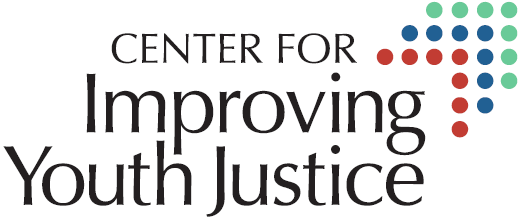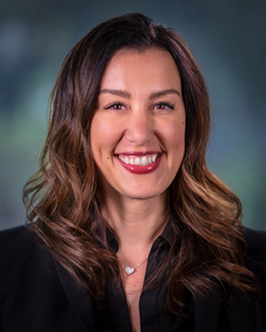Hailing from Montreal, Quebec, Canada, Felice Upton’s journey is marked by resilience, empathy and a commitment to creating positive change. With roots deeply embedded in a family history of activism, she has carried forward the legacy of her grandparents, who survived the Holocaust and dedicated their lives to leaving the world in a better place than they found it. She left home after experiencing a tumultuous adolescence that included abuse and violence and embarked on a mission to understand the profound impact of violence and abuse on individuals’ lives.
In celebration of Women’s History Month, the Center for Improving Youth Justice (CIYJ) is honored to shine a spotlight on Felice Upton, a dedicated advocate and current Assistant Secretary of Juvenile Rehabilitation for Washington State Department of Children, Youth and Families.
Career Evolution
Felice began working in corrections in 2003, worked her way up from intern to community corrections officer into adult prisons and culminated her time in adult corrections spending six years as the Associate Superintendent of Programs at Washington Corrections Center for Women. She believed that most of the people in the adult facilities could have been helped at early intervention points and realized that she wanted to work further upstream to make a lasting impact on young lives. Joining the juvenile justice system in 2020 as a facility superintendent, she immediately felt a connection with the young people and knew she’d foundher heart’s work. Recognizing the importance of intervening at multiple points in a young person’s life, Felice shared, “It is harder than I imagined, and I truly believe that we plant seeds that lead to lives being changed when we do our work well. We are here to kick open doors to opportunity for young people.”
Challenges and Triumphs
Reflecting on her career, Felice emphasizes the joy she finds witnessing young people achieve goals they once believed were unattainable. Every moment of inspiration comes from seeing these individuals, who have often been marginalized by other systems, realize their potential and overcome adversity. For Felice, it is these moments that make the challenging aspects of her work truly worthwhile.
Advice to Young Women
To young women starting their careers, Felice encourages authenticity. “Be who you are. You will frequently be asked or influenced to show up in ways that make others feel more comfortable. Sacrificing who you are will never be worth it. Bring your whole self to the table. You will be expected to do more than your peers, you will have to prove more. Do not diminish your whole person for the comfort of others. If you are not welcome at the table start a new table.” Felice also advocates for women supporting each other, reminding them that prioritizing family, self-care and balance is essential for sustained success.
Inspired by the Overcomers
“The people who have overcome the most…who are complex and deep thinkers, who don’t mind leaning into hard conversations. I am inspired by every person who questions the how and the who, who drives for systemic change and leans in. I am inspired by those whose actions match their speech.” Inspired by the overcomers and those who question the status quo, Felice is driven by a passion for systemic change and addressing the pressing issues in the youth justice field[KG1] .
Pressing Issues in Youth Justice
For Felice, the most pressing issue facing women in the youth justice field is the complexity of being the social service safety net for numerous other systems. She calls for a shift towards multi-systemic approaches to wraparound care for young people, recognizing the natural convening power of women in this field. Felice Upton’s story is one of determination, compassion, and a relentless pursuit of justice for young individuals in the juvenile justice system. As we celebrate Women’s History Month, her dedication serves as an inspiration to all women in the field, reminding us that authentic, compassionate leadership can indeed transform lives and systems. Felice’s work is a testament to the power of resilience, empathy, and the unwavering commitment to creating a better world for the next generation.

